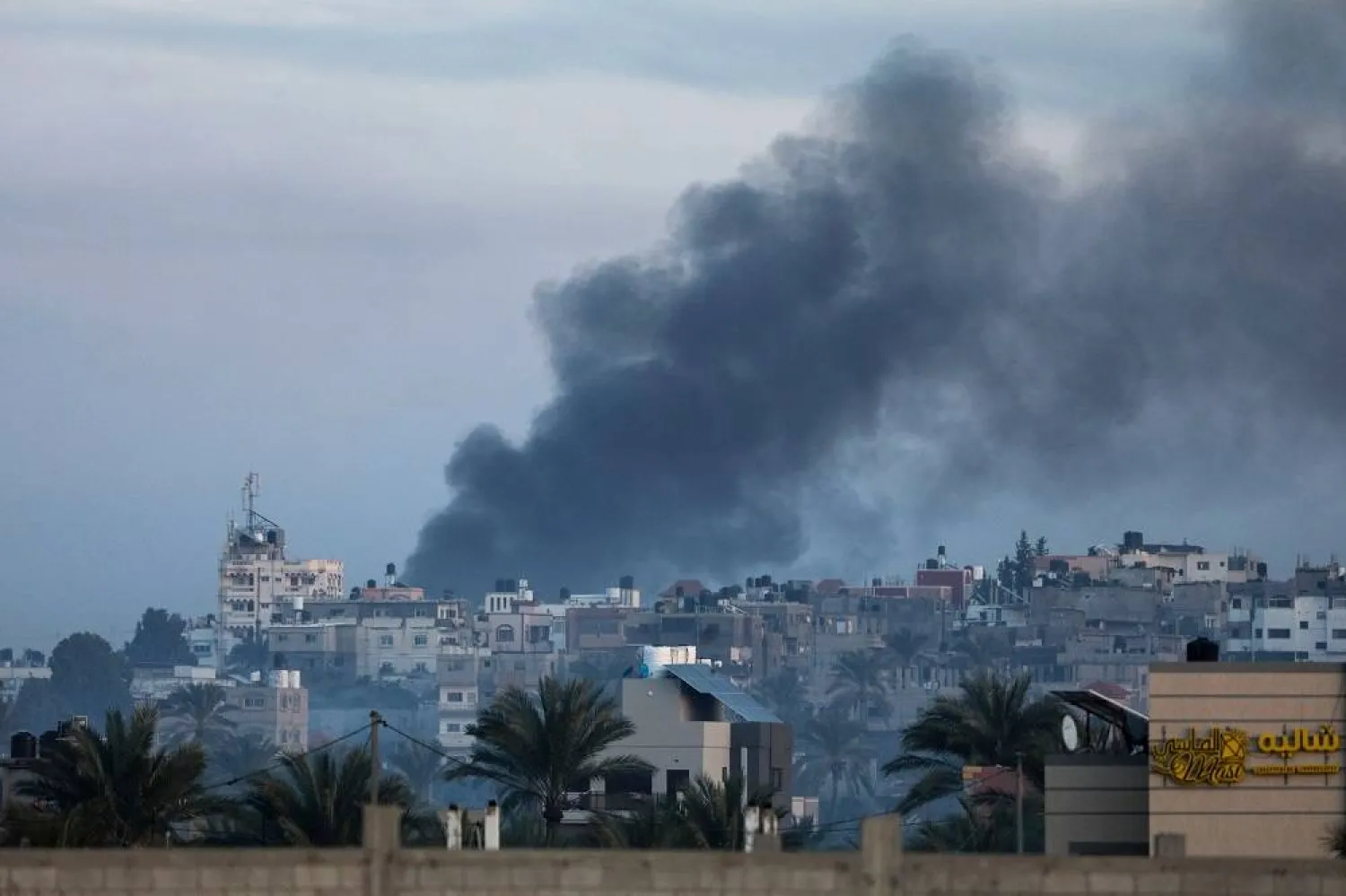US Secretary of State Antony Blinken on Tuesday urged Israeli leaders to avoid harming civilians in the war in Gaza and to seek a path towards the creation of Palestinian state as a way to resolve the long-running wider conflict.
Blinken was making his fourth visit to the Middle East since the war between Hamas and Israel erupted in October.
International concern has been growing over the huge Palestinian death toll from the Israeli assault on the enclave as well as a humanitarian crisis enveloping hundreds of thousands of people in Gaza.
The United States and other countries are also anxious to prevent the war from spreading through the wider Middle East.
Blinken met with Israeli Prime Minister Benjamin Netanyahu at Tel Aviv's Kirya military base on Tuesday and then with his war cabinet.
He stressed "the importance of avoiding further civilian harm and protecting civilian infrastructure in Gaza," State Department spokesperson Matthew Miller said in a statement.
Blinken also repeated the Biden administration's support for Israel's right to prevent a repeat of the Oct. 7 attacks by Hamas in southern Israel which killed 1,200 people and triggered the war in Gaza.
The Israeli air and ground assault has now killed more than 23,000 Palestinians, according to Gaza's health ministry, and obliterated large areas of the densely populated enclave.
As well as trying to tamp down regional tensions, Blinken has been discussing plans for the future governance of Gaza once the war is over.
In the meetings with Netanyahu, Blinken "reiterated the need to ensure lasting, sustainable peace for Israel and the region, including by the realization of a Palestinian state," Miller said.
Before arriving in Israel, Blinken held talks in Jordan, Qatar, the United Arab Emirates and Saudi Arabia, which have focused on seeking a longer-term approach to the Israel-Palestinian conflict to help end the Gaza war.
After his meetings with Arab leaders, he said they wanted closer relations with Israel but only if that included a "practical pathway" to a Palestinian state.
"I think there are actually real opportunities," he told his Israeli counterpart Israel Katz on Tuesday. "But we have to ... ensure that October 7 can never happen again and work to build a much different and much better future."
US-brokered talks on a Palestinian state in Israeli-occupied territory collapsed almost a decade ago, and right-wing leaders in Israel's current ruling coalition are outspokenly opposed to Palestinian statehood.
With US support, Israel established diplomatic ties with the United Arab Emirates and Bahrain in 2020.
Heavy fighting in south Gaza
After weeks of US pressure to ease its assault, Israel says it is moving from full-blown to more targeted warfare in northern Gaza, while maintaining intensive combat in southern areas.
It said its troops had killed around 40 Palestinian fighters and raided a militant compound and tunnels since Monday in Khan Younis, the main city in the south.
After a week of comparatively low Israeli losses, Israel said nine of its soldiers had been killed, mostly from engineering units tackling tunnels, in one of their deadliest days of the ground assault.
The health ministry in Gaza said 126 Palestinians had been killed and 241 wounded in the previous 24 hours.
Sean Casey, World Health Organization Emergency Medical Teams coordinator in Gaza, said the health system was fast collapsing, and Israel was denying access to more and more of Gaza for relief trucks.
"Every day we line up our convoys, we wait for clearance, and we don't get it - and then we come back and we do it again the next day."
Medical staff and patients were fleeing for their lives, including an estimated 600 patients from one facility, and 66 health workers were in detention.
Only about a third of Gaza's hospitals, all in southern and central Gaza, are even partially functional. The UN humanitarian office OCHA said three hospitals in central Gaza and Khan Younis were at risk of closure.
Casey said many staff at the main Nasser Hospital in Khan Younis had fled to shelters in the strip's southernmost tip, leaving just one doctor for more than 100 burn victims.
Hezbollah ‘does not want to expand war’
Israel's relentless bombardment and restrictions on aid supplies have prompted South Africa to file a lawsuit in the International Court of Justice, accusing Israel of genocidal actions. Hearings begin on Thursday.
Israeli President Isaac Herzog told Blinken there was "nothing more atrocious and preposterous" than that court case, noting that Hamas is sworn to Israel's destruction.
The conflict has rippled to Lebanon, where Hezbollah has been firing rockets into Israel in support of Hamas. Both groups are supported by Iran, Israel's sworn enemy.
Three members of Hezbollah were killed on Tuesday in a strike in the south of Lebanon, two sources familiar with the group's operations told Reuters, after a top Hezbollah commander was killed in the area on Monday.
Hezbollah said it had launched explosive drones at an army base in northern Israel in response to the killing of senior Hezbollah figure Wissam Tawil, and that of deputy Hamas leader Saleh al-Arouri in Beirut last week.
Hezbollah deputy leader Naim Qassem said in an address that his group did not want to expand the war from Lebanon, "but if Israel expands (it), the response is inevitable to the maximum extent required to deter Israel".
Israel has neither confirmed nor denied responsibility for the assassinations. The army said an unspecified northern base had experienced an aerial attack without damage or casualties.









